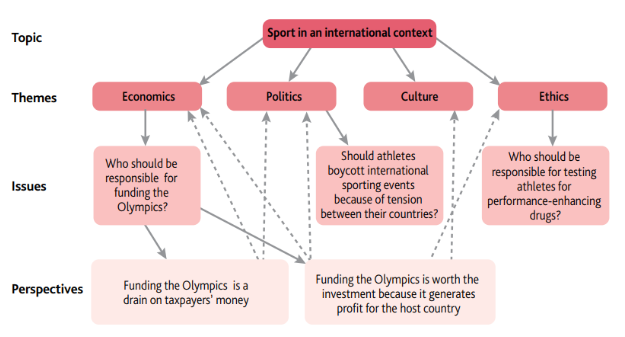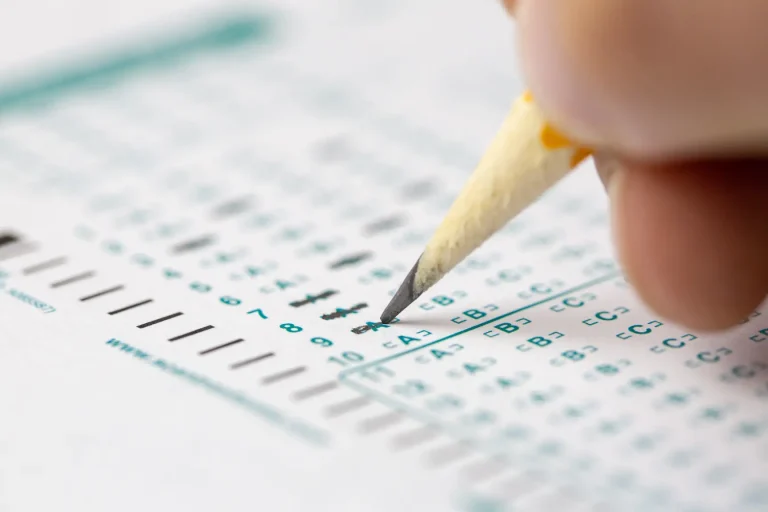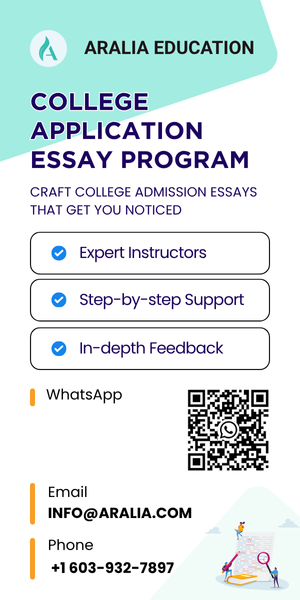1. What is Global Perspectives and Research?
In the previous article, we provided an overview of the AS and A Level curriculum, where we mentioned the Global Perspectives and Research class in various Cambridge International qualifications. If students are doing the Cambridge Pre-U, they have two options: participate in the class for two years or participate for one year as a shorter course. The class is in the first half of the Cambridge International A-Level course. Let’s take a step back and understand what the Global Perspectives and Research class offers.
Cambridge International AS & A Level Global Perspectives and Research prepares students with transferable skills: research, critical thinking, and communication. Students will collaborate with their peers in a team project throughout the course. In the course, students will learn to compose a research report based on a research question. There are four components to the course:
- Written Exam: The exam has 3 questions, where students will analyze and evaluate arguments, evidence, and perspectives.
- Essay: Students will submit 1750-200 words discussing a global issue of their choice.
- Team Project: Students will work with other students to identify a local problem with global relevance, and then research the problem and suggest solutions. Students will submit a presentation and a reflective paper in addition to the group research paper.
- Cambridge Research Report: Students will conduct independent research using their research questions. Students submit a research report of up to 5000 words and a research log recording the progress.
We know that four components seem like a lot, but students only have to do some of them depending on the route they choose to take. For example, candidates who take AS Level only will do the Written Exams, Essays, and Team Projects. Candidates who take 1 year of AS Level and 1 year of A Level will complete the Written Exam, Essay, and Team Project in the first year, and Cambridge Research Report in the second year. Candidates who take 2 years of A Level will take all four components.
The various routes to the A Level qualification are explained through our AS and A Level article; but, to sum up, students have three different assessment approaches to the AS and A Level, hence the different component requirements for each assessment:
- Standalone Assessment (AS Level), where students only take the AS level.
- Staged Assessment (A Level), where students take AS Level in Year 1 and extend the subjects to A Level in Year 2.
- Linear Assessment (A Level), where students take A Level Courses in the same series, or both AS and A2 Level (if students choose to take both AS and A2 Level, Cambridge International will calculate A Level grade as normal based on their performance in the AS and A2 Level).
2. What topics can I research for Global Perspectives and Research?
There is a wide range of topics and themes for students to choose from. The list of global topics is available below:
|
|
Global topics, themes, issues, and perspectives are different aspects of the course that cannot be used interchangeably. Cambridge International provides examples to help students visualize each term and connect them to form a research question.

Because the course is focused on a global perspective, this student thinks of sports in an international context. Within the “Sport in an international context” topic, they then utilize various lenses: economics, politics, culture, ethics, etc. With each theme, there are different questions that students can focus on; for example, “who should be responsible for funding the Olympics?” With that question, there are opposing opinions and perspectives to help you form an argument, along with evidence.
To wrap up, when coming up with a research question, students should first think about the global topics (a list of global topics is above), then decide on a particular field they want to explore. After that, they can apply various perspectives and form arguments that should be accompanied by evidence, reasoning, and the utilization of various reliable sources.
3. Global Perspectives and Research versus Curriculums in other countries
The United States
AS and A Level Global Perspective and Research can be considered to be comparable with the AP Seminar or AP Research in the U.S. The AP Seminar and AP Research are courses in the AP Capstone diploma program.
The AP Seminar is an introductory course to research. In a year-long AP Seminar course, students learn to investigate real-world issues by synthesizing information from different sources, developing persuasive arguments, and designing and delivering oral and visual presentations in both independent and team environments. The end goal of the AP Seminar class is to equip students with information analysis abilities, evaluation skills, and compelling, evidence-based argument creation. AP Research is a continuation of the AP Seminar, which normally starts in May – from the end of the AP Seminar course. With a solid foundation of research and problem solving, students conduct a yearlong research inquiry addressing a research question. By the end of the year, students will have produced a 5000-word research paper and a 15-20 minute oral defense.
Both the AP Seminar and Global Perspectives and Research focus on the transferable skills of critical thinking, research, analysis, oral presentation, teamwork, and high-order thinking skills, even though their syllabi and approach to teaching may be different. According to the research conducted by Cambridge International, AS Level Global Perspectives and Research is comparable with the AP Seminar, while the A Level Global Perspectives and Research are comparable with AP Research. The main differences lie in the grading systems and topics covered.
Australia
In the same research, Cambridge International mentioned that in Australia, unfortunately, there is not a particular program tailored to research and interpersonal skill development. The Senior Secondary Certificate of Education standard in Australia covers some analysis and evaluation of documents but is not a standalone course like A Level’s Global Perspectives and Research.
Australian students can take several proactive steps to develop research and interpersonal skills. Despite the absence of a specific program in their educational system, they can explore opportunities within their institution by seeking guidance from teachers or faculty members, engaging in extracurricular activities focused on research or debate, and utilizing online resources like Aralia Education, edX, or Khan Academy for research courses. They can also seek research opportunities outside of school, such as internships or volunteer positions, and connect with local and international communities by attending conferences or workshops. Additionally, they can develop self-directed research projects, identifying a topic of interest and formulating research questions.
We hope that this article has provided you with a better understanding of what the class offers, and how it is comparable to the American curriculum. We believe that this class is a unique and valuable opportunity for students who are interested in conducting research and writing research papers, and we encourage you to consider taking it if you have the opportunity.
Further your research skills with Aralia courses
Are you looking to take your research skills to the next level? Look no further than Aralia courses. Our comprehensive and expert-led programs are designed to equip you with the tools and techniques you need to excel in your research endeavors. Don’t miss out on the opportunity to sharpen your research skills and unlock new possibilities. Enroll in an Aralia course today and embark on a transformative learning journey!

This class is for students who are prepping to enter higher education with the hope of pursuing a research field in the context of business research. This course is taught by a scholar-practitioner who has extensive teaching and research experience at the undergraduate, graduate and doctoral levels. Under the guidance of the professor, students will write a 15-page paper on business research topics; examples of research topics: The global impact of the “Belt and Road” initiative, China’s 1989 economic reform, How social media makes the world global, Sino-US trade war and more.

Students will use college-level economic theory and models to analyze the financial impact on the global economy. The economic tutor will provide students with the models and tools necessary to write an economic research paper. The economic research project encourages students to integrate their acquired knowledge of economic theory, phenomenon, data, and policy.

Through Historical Research and Writing, students will learn about choosing a topic, composing research questions, effective research methods, drafting, composing, and revising. These skills will be taught with an emphasis on historical research, allowing students to engage in analysis of primary and secondary sources, discover interesting insights in history, and partake in the active pursuit of understanding the importance of the historical study.

Under the guidance of the professor, students will write a 15-page paper on the topic of international relations; examples of research topics: What is globalization? How do we measure it? What are the pros and cons of globalization? What is the best way to reduce government corruption? Use the data of Transparency International, select a country and write a report, etc.

This Psychology Research Program takes knowledge from the Introductory psychology course, leads students to understand all aspects of psychology, and explores their interests through conducting research. The professor will guide students through an empirical review of current psychological literature.











